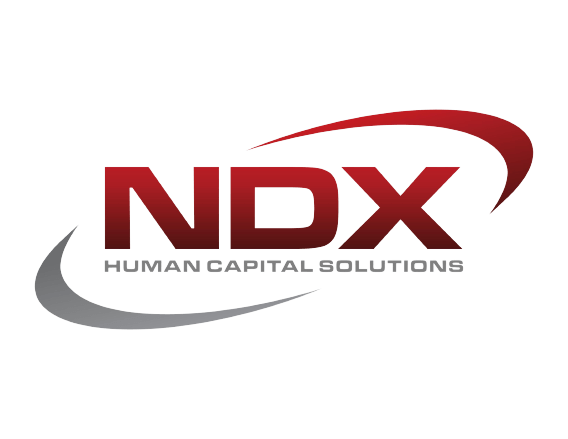NDX Blog

2020 changed everything in the workplace. From there, the remote workplace began. This changed the way we thought about productivity, flexibility, and work-life balance. This experience opened doors for talent across the country and created opportunities for companies to build more diverse teams. But as beneficial as remote work can be, it’s not a one-size-fits-all solution—and it comes with challenges that leaders can’t afford to ignore. Connection Matters For many professionals, the remote experience varies depending on where a company is headquartered and how teams are structured. Access to in-person meetings, client interactions, and collaborative opportunities often depends on geography and company culture. Those moments of connection are invaluable. The conversations that happen over coffee, during a site visit, or in the middle of a brainstorming session can’t be replicated on a screen. Non-verbal communication is crucial. When we remove those human interactions completely, we risk more than missed collaboration. The conversations that happen naturally in person foster trust, understanding, and creativity in ways that can’t always be replicated virtually. Human Connection Leads In-person communication has been the cornerstone of business success from the very beginning. From the first handshake that launched a partnership to the strategy sessions that drive innovation – human interaction builds trust and clarity. When teams operate entirely online, communication gaps are guaranteed to emerge. Messages may be misread, tone can be overlooked, and informal learning processes (these include spontaneous exchanges that generate innovative thinking) are gradually reduced. Over time, these small breakdowns can snowball into bigger challenges: miscommunication, inefficiency, and eventually, disengagement. Cost of Disconnection The absence of meaningful connection doesn’t just impact collaboration, it impacts retention. Without human connection, employees can start to feel isolated or unseen. Strategy becomes harder to align, culture becomes harder to sustain, which leads to burnout. This disconnection often leads to higher turnover, not because the work itself changes, but because the sense of belonging and validation fades. People thrive when they feel part of something larger than themselves. This is something you can’t fully capture through a Zoom meeting. Every person has a different need and form of validation to thrive. Therefore there is never a one-size fits all for remote work. Balancing Flexibility and Human Connection Remote work is here to stay, and for many roles, it offers tremendous value. But companies must be intentional about preserving opportunities for authentic human connection, whether through travel, off-site events, or periodic in-person collaboration. When we blend flexibility with genuine connection, there is the opportunity to create stronger teams and more resilient cultures. The workplace needs to provide an environment for ALL employees to not just work – but grow. Because at the end of the day, business has always been built on people. At NDX, we know “it’s all about people” and people need connection.

It’s no secret to anyone - Artificial Intelligence (AI) is rapidly transforming the hiring landscape. With reshaping how companies’ source, screen, and select candidates – it can be significantly discouraging for job seekers. While AI can bring efficiency and consistency to the recruitment process, it also introduces a roster of new challenges. I’m sure we’ve all felt the ripple effect of this in the past 3 – 5 years. Whether you’re actively searching for a role or preparing for your next career move, understanding AI’s impact in hiring (even better, knowing how to work with it), will enable you to make the difference between being overlooked and getting noticed by employers. The Pros of AI in the Job Search Faster Hiring Decisions: AI has the potential to streamline resume screening through algorithms and pre-existing qualifiers (set by the employer) and enables recruiters to review applications at a more rapid pace. This can mean faster response times for candidates compared to a manual process. Improved Job Matching: Advanced algorithms enable the ability to scan skills, experience, and career history to suggest roles that align closely with your qualifications. This can limit the possibility of uncovering opportunities you may not have considered. Reduced Bias: In ideal theory with proper AI Governance practices, AI has the potential to reduce human bias in the early screening stages by focusing on data-driven criteria like skills and experience. However, it may over overlook unique qualifying attributes per candidate and out of the box experience as it’s not labeled/measured as part of the quantifiable screening process. The Cons of AI in the Job Search Over-Filtering: If your resume isn’t formatted in a way that AI screening algorithms can easily detect, important skills and experiences they may be over-looked — resulting in your application being filtered out. Keyword Dependence: AI often relies heavily on keyword matching. If the terms in your resume don’t exactly align with the specific job description, your application may not pass the first round - even if you’re the perfect candidate for the position. Lack of Context: Unlike a human reviewer (or human-in-the-loop), AI can struggle to understand career gaps, transferable skills, or nontraditional career paths and experience. How to Stay Ahead of the Game Optimize for ATS (Applicant Tracking Systems) Use clear, standard headings like “Work Experience” and “Skills.” Avoid tables, graphics, or unusual fonts that could confuse the AI screening model. Any item that requires insertion to your resume or document can confuse AI and eliminate you from the hiring process based on resume-screening Incorporate keywords directly from the job posting, but keep them natural and relevant. It doesn’t hurt to use AI to your advantage to ensure your resume will pass through screening. Utilize a Large Language Model (LLM), i.e. ChatGPT, Gemini, etc. to ensure your resume will qualify. In other words, use AI to your benefit. Yes , you can paste your resume into an LLM and use a prompt to ensure it will pass through AI screening. Below is a prompt example for reference: “I am applying for the [Job Title] position at [Company Name]. Here is the job description: [paste job description]. Below is my current resume: [paste your resume text]. Please review my resume against the job description as if you were an Applicant Tracking System (ATS) and identify: Whether my resume contains the relevant keywords and skills to pass AI screening. Any missing skills, certifications, or qualifications that should be added to match the role. Formatting or wording changes to make it more ATS-friendly. A revised version of my resume optimized for ATS scanning while keeping it authentic and professional.” Balance Keywords with Context: While keywords are important, ensure your resume tells a compelling and cohesive story. Support key terms with measurable results and examples. Apply Strategically: AI won’t replace the value of networking and human-human connection. Reach out to recruiters, connect with hiring managers on LinkedIn, and ask for referrals to complement your applications. Keep Learning: AI is constantly evolving and we’re at the tip of the iceberg. So are the skills and keywords employers look for. Upskill in high-demand areas, especially those related to your field and emerging technologies. Standing Out Beyond AI Once you’ve navigated the ATS filter, you still need to stand out to the hiring managers on the other side. This entails: Crafting a compelling LinkedIn profile that complements your resume. Preparing clear, confident responses for behavioral and technical interviews. Demonstrating adaptability and a willingness to learn — qualities AI can’t quantifiably measure but hiring managers value highly. Bottom Line AI isn’t going away anytime soon, especially in the hiring process — but with the right approach, it can work in your favor. By understanding how AI screens candidates, formatting your materials for compatibility, focusing on both human and digital connections and utilizing AI for your overall advantage, you’ll be better positioned to land your next opportunity.

Recent shifts in global trade policy—particularly new and expanded tariffs—are creating ripple effects across multiple industries. While much attention has been focused on manufacturing and supply chains, the implications for technical recruiting and contract staffing are becoming increasingly evident. A Shifting Hiring Landscape As tariffs increase the costs of goods and materials, many companies are responding by trimming budgets and slowing down hiring. In Michigan, we’ve seen a clear reduction in open technical roles, particularly in engineering, R&D, and production support. A recent USA Today report confirms these trends: industries most exposed to international trade—including automotive, machinery, and electronics—have begun pausing recruitment plans as uncertainty rises. In addition, according to Dr. John Sullivan, trade tensions are now a leading force in corporate cost-cutting and workforce restructuring. Employers are reassessing how and when they bring on talent, resulting in key trends like: A shift toward contract-based and project work to remain nimble Increased scrutiny on the ROI of each hire A preference for cross-functional roles that enable leaner teams For Job Seekers This is an ideal time to take a proactive approach. Employers are increasingly focused on versatility, value, and long-term potential, and they're more likely to engage with candidates who demonstrate those traits—even before a position is officially posted. Here are a few ways to stand out in today’s market: Highlight results: Use concrete data—how did your work drive efficiency, cost savings, or solve problems? Upskill: Short-term certifications, technical training, or refreshing industry tools can keep your profile competitive and relevant. Embrace flexibility: Contract or project work can open doors and keep your momentum going. Stay engaged: Keep your resume updated, connect with your network, and monitor hiring trends in your field. For Employers For employers, this is a critical time to approach hiring with intentionality. A slower pace doesn’t mean stopping—it means planning more strategically. By identifying long-term skill needs now and building future pipelines, companies can better position themselves for recovery. Ways to stay ahead: Audit skills gaps: Focus on roles that will be essential 6–12 months from now. Engage passive candidates: Don’t wait for roles to open before engaging with talent. Prioritize flexibility: Consider whether contract, project-based, or fractional support could help maintain progress without overcommitting in uncertain times. Stay connected: Maintaining transparency with employees and candidates builds trust and sets the tone for future growth. Slower hiring doesn’t mean standing still. It means hiring with purpose. And by remaining agile, informed, and people-focused, employers can lay the groundwork for smarter, more sustainable workforce growth ahead. Our Proactive Measures At NDX Staffing, we’re navigating this uncertainty with agility—and staying grounded in the values that guide us: Integrity, Vision, Gratitude, Collaboration, Grit, Execution, and Humility. Here’s how that translates into action: Flexible Staffing Solutions: With grit and execution, we design adaptable staffing models that help our partners respond quickly to change. Enhanced Talent Pipelines: Through vision and humility, we grow and diversify our networks to meet evolving needs across technical roles. Strategic Partnerships: Driven by collaboration and gratitude, we work closely with clients to co-create workforce strategies that are thoughtful and future-proof. Whether you're an employer planning for the months ahead or a job seeker looking to navigate the current landscape, the key is to stay informed, flexible, and focused on long-term goals. Looking Ahead Tariffs and trade policy will continue to shape the economic landscape. But even amid uncertainty, there is opportunity—for growth, for innovation, and for building stronger, more agile teams. Whether you're a job seeker preparing for your next move or an employer planning for what's ahead, the steps taken now – matter. Sources: Dr. John Sullivan, How Tariffs and Trade Wars Are Impacting Recruiting Eaton Vance, How Do Automotive Tariffs Impact the Auto Corporate Sector? HireLevel, How Tariffs Affect Staffing Number Analytics, Navigating Tech Hiring in a Shifting Tariff Policy Environment For more information on how NDX can support you during these times, please reach out at connect@ndxstaffing.com .


